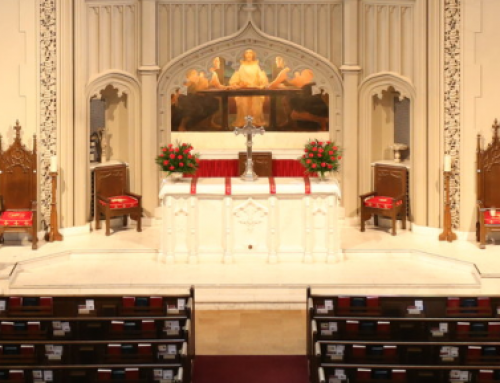You probably know the saying “Gods ways are not our ways”, which is sometimes used when we have no explanations or do not even want to think about them. It is taken from Isaiah 55 verse 8. The following verse even states that Gods ways and ours differ like heaven an earth. Now, in what way is this analogy applicable? Sure, if we read the various Bible stories, we encounter a God who continues to surprise us by His actions. One time God creates a complete universe out of nothing, another time God performs all kinds of miracles to save a family from the Flood or to lead an insignificant people out of their slavery in Egypt. After that, mankind is not abandoned, either. A shepherd becomes a king. Two millenia ago God was even born as a human child. And again we have a king who differs from what we normally imagine a king to be like. To be honest, the Bible also contains a lot of things we utterly fail to understand. Cruelty, strange rules and regulations, and a symbolism which is often far removed from our daily lives.
We would almost draw the conclusion that God and mankind are incomparable and usually separated. God appears to be rather “alien”, while mankind has nothing divine. Religion and humanity don’t appear to mix very well, either. Where exactly it went wrong is a different story. What I like to emphasise here is that it was never meant that way. Were men and women not created in the image of God? And what does it mean when God is so often portrayed as a kind of superman? Could that be a sign that we are dealing with pure fantasy or is it a good sign that this God shows human traits? Maybe religion and theology are not abstract and meaningless activities after all, consisting of elaborate fairy tales and leading to conflicts.
Fortunately Jesus gave us an important key when he summarised the commandments. Love God above all else and your neighbour as yourself. It is important that, in this connection, Jesus hastes to add that the second command is like the first. As a bare minimum, this means that you cannot separate the two. When you love God, it hopefully implies that you love Gods creatures and creation, as well. Vice versa, you will have a hard time loving people without loving the One who made them. Apparently, there is considerable connection between God and mankind. People were often able and chosen to speak on behalf of God. Think of the prophets. In turn, God often defends people, especially the downtrodden, the outcasts and others who are suffering. Should anyone have any doubts about it, this solidarity was highlighted and sealed when God became man in Jesus Christ.
However, we do have another, possibly less obvious, key to understanding God’s proximity. God forbids casting Him in concrete, making graven images of the divine. So what is that all about? We have just seen that God has positive “human” traits, perhaps very much so, but now we are not allowed to picture or represent them in our own way? Yet, this is very important in order to keep things in perspective. It is only logical that we should not try to “imagine” God. After all we ourselves have already been created as images or “imaginations” of God. And to the extent that we no longer reflect God, the Holy Spirit allows for some considerable, though gradual, restoration. Every other “portrait” we make of God, will distract us from the work God wants to do in us. More than that, it will de-humanise us.
For how will it benefit us to imagine a god who is not tender and merciful towards his creatures, but who is primarily demanding to be worshipped? If such a god becomes our great example, we ourselves will inevitably become more self-absorbed, as well. That, by the way, is exactly what we see in the world around us. Too often, God is equated to an ideology which constantly demands sacrifices, including the welfare and the lives of others. This way we are keeping alive a culture in which it seems that win-win solutions are not possible. Or we worship something else beyond ourselves, like technology or the “global market”. Then, too, we are transformed into that which we worship. The distinction between a human and a machine will (seem to) disappear. Or we are constantly running around “selling” ourselves as if everything, including love, is a marketable.
So we find that it is important to realise that we can believe in a God who is interested in people and who, in that sense, is “human” or humane. Paradoxically, it is necessary to also believe that God is sometimes completely opposed to the “human” way of doing things, namely when we are morally out of control, when we need to return to solidarity, compassion and simplicity. From time to time we need to be reminded to dethrone all kinds of idols. It may even take a particular kind of violence to achieve this. A violence, though, which consists of no more than words of redemption and faithful resistance against inhumanity. The violence of the two-edged sword of truth, albeit not our truth, but the truth of a merciful God. The supremacy of the kingdom of God, constantly confronting us with ourselves. The unmasking and expulsion of toxic systems and trends by the salvation, wisdom and compassion of Christ. Then God and mankind will be on speaking terms and Gods ways will seem to be less “alien”. Hopefully, we will be more surprised about ourselves than about God and recognise that some of the things we used to regard as divine or pious, were not.
This post is also available in: Dutch





Leave A Comment